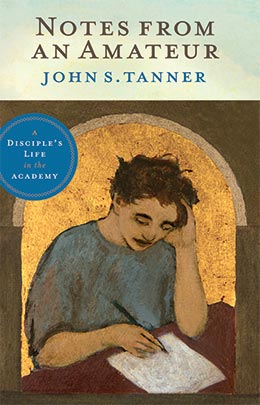So from the Beginning
John S. Tanner, Notes from an Amateur: A Disciple’s Life in the Academy (Provo, UT: Religious Studies Center; Salt Lake City: Deseret Book, 2011), 126–8.
I seem to recall that the story of Joseph in Egypt held special appeal for the pilgrims. If so, I can see why. It not only recounts one of the most humanly dramatic of Old Testament narratives but tells a theologically rich story of God’s hidden providence in history, a favorite Puritan theme. This theme is made explicit in the poignant climax, when Joseph finally reveals himself to his brothers. Joseph artfully deflects attention away from his siblings’ evil purposes and redirects it toward him and to the Lord’s merciful purposes toward their family, the chosen lineage of Israel:
And Joseph said unto his brethren, Come near to me, I pray you. And they came near. And he said, I am Joseph your brother, whom ye sold into Egypt.
Now therefore be not grieved, nor angry with yourselves, that ye sold me hither: for God did send me before you to preserve life.
For these two years hath the famine been in the land: and yet there are five years, in the which there shall neither be earing nor harvest.
And God sent me before you to preserve you a posterity in the earth, and to save your lives by a great deliverance.
So now it was not you that sent me hither, but God. (Genesis 45:4–8)
Like Joseph, the pilgrims were wont to detect providential patterns behind the twists and turns, the setbacks and vicissitudes of history. They were confident that God moved through history to work out his hidden designs, however difficult these may be to discern in the moment, and that heaven held sway in the destiny of nations, peoples, and individuals.
This faith is captured in one of my favorite Thanksgiving hymns, “We Gather Together,” which dates back to the pilgrim era in the seventeenth century. The context is the Dutch Protestant struggle against Catholic rule. The lines I particularly love are these: “So from the beginning the fight we were winning; / Thou, Lord, wast at our side; All glory be thine!”
I am always struck by the verb tenses in these lines. The past tense implies retrospective revelation about the ways of Providence. We were winning all along—indeed, from the beginning—whether or not we knew it at the time. Even in the darkest hours, the Lord was at our side.
So too he was for Joseph: God was with him in the pit and when his brothers sold him to slavers. The Lord was with him in Egypt, both when his star was ascending in Potiphar’s house and when he languished for years in a foul dungeon, forgotten by Pharaoh’s butler (see Genesis 39–40). And he was there for Joseph’s family in the famine. From the beginning, the House of Israel was winning. God was preserving his people all along.
It is difficult to trust in the Lord’s hidden providence, especially when things are going badly, as they did that first winter for the pilgrims, which is remembered in history as “the starving time.” Their pilgrimage, as ours, unfolded in a history whose providential design was difficult to discern at the time. Providence is sometimes hidden to pilgrims who must make their way in medias res (“in the midst of things”) on an epic journey home called mortality. The hand of Providence often reveals itself retrospectively rather than prospectively to pilgrims. As Kierkegaard observed, life must be understood backwards but lived forward. As pilgrims, we journey into the future, hopeful that in the fullness of time we shall understand how it was that “from the beginning, the fight we were winning.” This Thanksgiving, I express gratitude for the exemplary faith of fellow pilgrims in every age who have discerned God’s hidden providences whether in feast or in famine.
